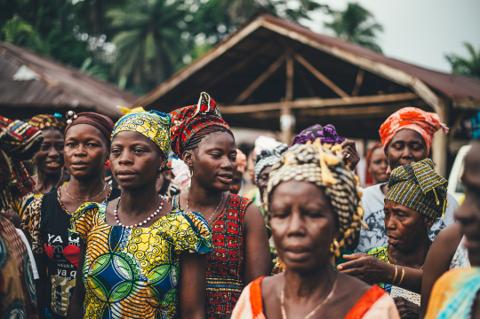Date: 22nd March 2024
On the occasion of World Water Day 2024, the Africa Water Justice Network underscores the critical importance of addressing the pressing water crisis plaguing our continent.
Despite decades of efforts and the implementation of policies prescribed by international financial institutions like the World Bank, millions of Africans still lack access to water.
The policy of water privatization, driven by a misguided sole emphasis on financial sustainability at the expense of human rights and public health, has hastened inequalities. The neglected and the most vulnerable populations continue to rise in numbers.
Other than prioritizing the fundamental human right to access to water, governments with the influence of international financial institutions, have pursued privatization schemes that burden citizens with exorbitant costs hence perpetuating inequality, amid depletion of water from water sources, due to climatic changes. The supply needs do not match the demographic changes in the last few decades.
We cannot ignore the consequences of this approach: widespread social unrest, conflicts, and violations of human rights are becoming increasingly common across African cities. Clashes between law enforcement and citizens over water access in Cape Town, Dakar, Lagos, Accra, Nairobi, and Harare serve as painful reminders of the failures of current policies. Additionally we also see the impact of the policy of privatisation on women and girls who are forced to fill in the gap abdicated by governments to supply homes with water.
On this World Water Day with the appropriate theme of “Water for Peace,” the Africa Water Justice Network calls for governments to reject the policy of water financialisation. We urge African governments to prioritize peace, communal tranquility, and human rights in their approach to water governance. Water is not merely a commodity; it is a basic human right essential for life and dignity.
To address the water crisis effectively, we propose the following recommendations:
- Investment in Public Infrastructure: Governments must allocate increased budgetary resources towards building and maintaining public water infrastructure to ensure universal access to safe drinking water.
- Community Participation: Policies should prioritize community-driven solutions that empower local populations to manage and govern their water resources, fostering a sense of ownership and accountability.
- Regulation and Oversight: Governments must enact robust regulatory frameworks to oversee water services, ensuring that they are accessible, affordable, and of high quality.
- Partnerships for Equity: Foster partnerships among public water utilities and between public and community water systems to build capacity and improve services.
- Recognition of Indigenous Rights: Respect the rights of Indigenous communities to access and manage water resources in accordance with their customary practices..
As we mark World Water Day 2024, let us reaffirm our commitment to achieving water justice for all Africans. It is only through collective action, informed by principles of equity and human rights, that we can overcome the challenges facing our continent.
